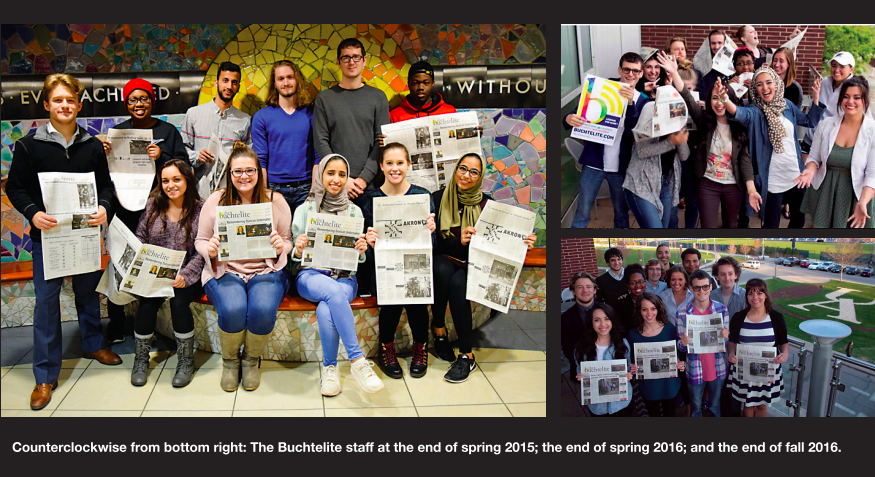“David M. Walker, Comptroller General of the United States, was welcomed to the University of Akron Tuesday. The Buchtel College of Arts and Sciences and the Department of Economics welcomed and sponsored Walker to speak at E. J. Thomas Hall as part of his Fiscal Wake-Up Tour.”
“
David M. Walker, Comptroller General of the United States, was welcomed to the University of Akron Tuesday.
The Buchtel College of Arts and Sciences and the Department of Economics welcomed and sponsored Walker to speak at E. J. Thomas Hall as part of his Fiscal Wake-Up Tour.
His lecture tour is a series of forums that he presented around the nation. Its purpose is to inform citizens of the federal government’s current deficit and the challenges posed to the nation by its long-term economic trends. Additional goals of Walker’s discussion included a blunt and realistic approach to the nation’s current financial situation which, according to Walker, is a cause for concern.
By participating in these speeches, Walker hopes to raise public awareness regarding the financial crisis and accelerate changes in economic situations among all levels of government.
Walker is the seventh Comptroller General of the United States. He took his oath of office on Nov. 9, 1998, and is 10 years into his 15-year long term. As Comptroller General, Walker is the nation’s chief accountability officer and heads the U.S. Government Accountability Office, or the GAO.
Walker discussed that in the midst of Washington D.C.’s politics and fact free zones, the GAO strives to improve the performance and assure the accountability of the federal government for the benefit of United States citizens.
Walker said the United States is the only current unrivaled economic and cultural superpower. However, in the next few decades there will most likely be at least one or two other countries competing for superpower status.
Due to this impending rivalry, Walker told the audience that, it is our challenge to keep America great.
The audience was captivated as Walker dove into slide after slide displaying graphs and lists charting the drastic changes in the nations funding over the past 50 years.
Walker stressed that the largest problem that the nation faces is money spent on Medicare and Medicaid. A circle graph displayed that in 1966 federal spending towards Medicare and Medicaid was approximately one percent, compared to the 19 percent that was spent in 2006.
According to Walker, the U.S. is the only country in the world that does not have a budget planned for its medical systems; the U.S. virtually offers up a blank check for medical expense purposes. In addition to the 19 percent that is spent towards Medicare and Medicaid, an additional 21 percent of funding is spent on social security.
Walker said that the nation is faced by another crisis-the fact that mandatory spending is up while discretionary spending is down.
While many think that raising corporate taxes is the answer to increased funds, Walker stressed that this is not so. Companies are more loyal to their shareholders than to their country and if they feel they are overly taxed they may take business elsewhere-somewhere they can gain the most benefit for their shareholders.
The slide that had the most shocking impact on the audience, however, was the one outlining the personal fiscal burden of each family.
Walker explained that each person in the country is burdened with $175,000 of U.S. debt. Even newborn babies are part into this debt, of which Walker said, No wonder they cry when they come into this world.
While this truly isn’t a laughing matter, it caused a ripple of laughter throughout the audience.
Walker said Medicare’s deficit alone is in the hole by $34 trillion. Combined with other government programs such as Medicaid, Social Security and National Defense, the nation’s debts add up to much more than most believe.
(Americans) have not yet learned the rules of holes, he said. When you are in a hole, stop digging.
If we were to eliminate all of President Bush’s tax cuts, foreign aid and the Department of Defense tomorrow, it would still not help the problem with the deficit.
Towards the end of his speech, Walker explained that the U.S. is facing large deficits in future due to demographic trends and rising health care costs.
Waiting to balance the budget in 2040 could result in needing drastic measures such as cutting federal spending by 60 percent and/or raising federal taxes by two times today’s level.
Walker explained that such drastic measures are avoidable if changes are made quickly, because the nation cannot solve the problem with faster economic growth.
He said difficult decisions had to be made.
Walker believes that a solution could easily be found with active involvement from both the legislative and executive branches. He presented a three-pronged approach towards a solution, which included improving financial reporting and public education regarding the deficit. It also included strengthening the budget and legislative processes and controls. Walker said the U.S. also needed to reexamine its spending to make the transformations in the 20th century, including entitlement programs, and taxing.
Walker has a severe concern for the young people of America.
I have three grandchildren, two, five and six years of age, he said.
They are not yet even in grade school, but face the overwhelming burden of unsustainable future for the U.S. The real reason why Walker finds it so important to spread the news to take action before it is too late is because his grandchildren do not yet have a voice. Until they do, Walker said, their granddaddy is their voice.
“



